7 start with I start with I
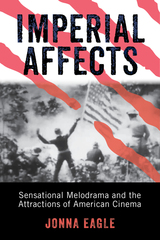
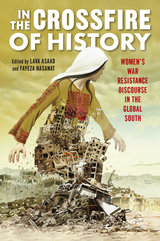
The transformative mode of these examples expands the definition of heroism and defiance. To prevent these types of heroism from slipping into the abyss of history, this collection brings forth and celebrates women’s fortitude in conflict zones. In the Crossfire of History shines a light onwomen across the globe who are resisting the sociopolitical and economic injustices in their nation-states.
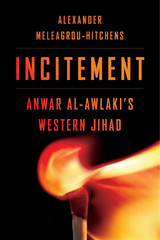
The definitive account of the career and legacy of the most influential Western exponent of violent jihad.
Anwar al-Awlaki was, according to one of his followers, “the main man who translated jihad into English.” By the time he was killed by an American drone strike in 2011, he had become a spiritual leader for thousands of extremists, especially in the United States and Britain, where he aimed to make violent Islamism “as American as apple pie and as British as afternoon tea.” Alexander Meleagrou-Hitchens draws on extensive research among al-Awlaki’s former colleagues, friends, and followers, including interviews with convicted terrorists, to explain how he established his network and why his message resonated with disaffected Muslims in the West.
A native of New Mexico, al-Awlaki rose to prominence in 2001 as the imam of a Virginia mosque attended by three of the 9/11 hijackers. After leaving for Britain in 2002, he began delivering popular lectures and sermons that were increasingly radical and anti-Western. In 2004 he moved to Yemen, where he eventually joined al-Qaeda and oversaw numerous major international terrorist plots. Through live video broadcasts to Western mosques and universities, YouTube, magazines, and other media, he soon became the world’s foremost English-speaking recruiter for violent Islamism. One measure of his success is that he has been linked to about a quarter of Islamists convicted of terrorism-related offenses in the United States since 2007.
Despite the extreme nature of these activities, Meleagrou-Hitchens argues that al-Awlaki’s strategy and tactics are best understood through traditional social-movement theory. With clarity and verve, he shows how violent fundamentalists are born.
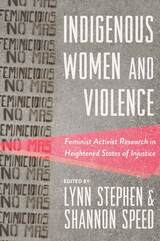
Indigenous Women and Violence is built on engaging case studies that highlight the individual and collective struggles that Indigenous women face from the racial and gendered oppression that structures their lives. Gendered violence has always been a part of the genocidal and assimilationist projects of settler colonialism, and it remains so today. These structures—and the forms of violence inherent to them—are driving criminalization and victimization of Indigenous men and women, leading to escalating levels of assassination, incarceration, or transnational displacement of Indigenous people, and especially Indigenous women.
This volume brings together the potent ethnographic research of eight scholars who have dedicated their careers to illuminating the ways in which Indigenous women have challenged communities, states, legal systems, and social movements to promote gender justice. The chapters in this book are engaged, feminist, collaborative, and activism focused, conveying powerful messages about the resilience and resistance of Indigenous women in the face of violence and systemic oppression.
Contributors: R. Aída Hernández-Castillo, Morna Macleod, Mariana Mora, María Teresa Sierra, Shannon Speed, Lynn Stephen, Margo Tamez, Irma Alicia Velásquez Nimatuj

An Open Letters Monthly Best Nonfiction Book of the Year
America’s criminal justice system is broken. The United States punishes at a higher per capita rate than any other country in the world. In the last twenty years, incarceration rates have risen 500 percent. Sentences are harsh, prisons are overcrowded, life inside is dangerous, and rehabilitation programs are ineffective. Looking not only to court records but to works of philosophy, history, and literature for illumination, Robert Ferguson, a distinguished law professor, diagnoses all parts of a now massive, out-of-control punishment regime.
“If I had won the $400 million Powerball lottery last week I swear I would have ordered a copy for every member of Congress, every judge in America, every prosecutor, and every state prison official and lawmaker who controls the life of even one of the millions of inmates who exist today, many in inhumane and deplorable conditions, in our nation’s prisons.”
—Andrew Cohen, The Atlantic
“Inferno is a passionate, wide-ranging effort to understand and challenge…our heavy reliance on imprisonment. It is an important book, especially for those (like me) who are inclined towards avoidance and tragic complacency…[Ferguson’s] book is too balanced and thoughtful to be disregarded.”
—Robert F. Nagel, Weekly Standard

Inked is a social history of common soldiers of the Song Dynasty, most of whom would have been recognized by their tattooed bodies. Overlooked in the historical record, tattoos were an indelible aspect of the Song world, and their ubiquity was tied to the rise of the penal–military complex, a vast system for social control, warfare, and labor.
Although much has been written about the institutional, strategic, and political aspects of the history of the Song and its military, this book is a first-of-its-kind investigation into the lives of the people who fought for the state. Elad Alyagon examines the army as a meeting place between marginalized social groups and elites. In the process, he shows the military to be a space where a new criminalized lower class was molded in a constant struggle between common soldiers and the agents of the Song state. For the millions of people caught in the orbit of this system—the tattooed soldiers, their families, and their neighbors—the Song period was no age of benevolence, but one of servitude, violence, and resistance. Inked is their story.
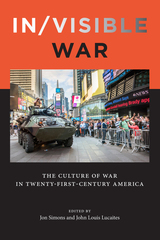
Yet, the normalization of twenty-first century war also renders it highly visible. War is made visible through popular, commercial, mediated culture. The spectacle of war occupies the contemporary public sphere in the forms of celebrations at athletic events and in films, video games, and other media, coming together as MIME, the Military-Industrial-Media-Entertainment Network.
READERS
Browse our collection.
PUBLISHERS
See BiblioVault's publisher services.
STUDENT SERVICES
Files for college accessibility offices.
UChicago Accessibility Resources
home | accessibility | search | about | contact us
BiblioVault ® 2001 - 2024
The University of Chicago Press









